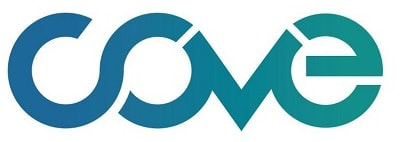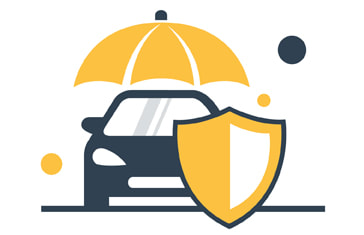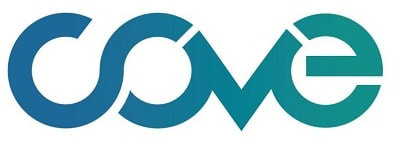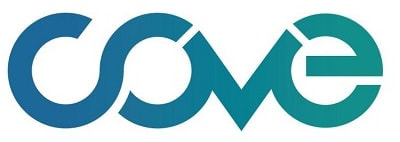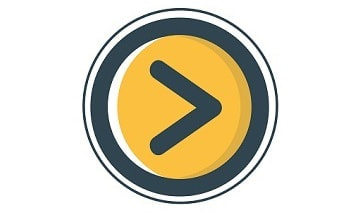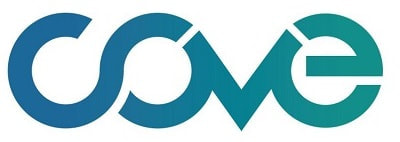Compare Comprehensive Car Insurance & Find the Best Value Policy
Our comparison outlines how car insurance works, shows sample quotes, and helps you get a cheaper policy you can rely on if and when you need to make a claim.
Updated 27 July 2024
Summary:
Useful guides to help you save:
Summary:
- Want the best policy price? Compare insurers and you will find it. In preparing this guide, we compared insurance quotes from AMI, AA Insurance, Cove, State Insurance, Trade Me Insurance and Tower Insurance. Most car insurers don't provide online quotes - our Car Insurers Directory lists all 35+ companies offering policies.
- In our simple survey, policy costs varied widely - for the two vehicles we sampled, we found Tower Insurance and Cove Insurance to be the best value car insurers for drivers in most parts of New Zealand.
- What you pay for car insurance will vary by model and driver specs - those who spend 10-15 minutes pricing trusted insurers online can most likely find a deal among the providers.
- Comprehensive car insurance is almost always more expensive than third party car insurance, and is a popular choice for a vehicle worth more than $5,000. However, before deciding whether to select comprehensive or third party, ask yourself - would I have enough money to replace my car if it was in an accident? If you wouldn't, then a Comprehensive policy may be a sensible choice.
Useful guides to help you save:
- Do you want to know your car's current valuaiton? Our free Car Valuations tool gives instant results.
- Do you want to compare policies by benefits? Our AMI vs AA Insurance vs Cove vs State vs Tower vs Trade Me Insurance review has all the details.
- Are you considering a third party policy? This guide is not for you - our Third Party Car Insurance Comparison explains what you need to know.
- Do you want to save money on your policy? Our How to Get Cheaper Car Insurance guide has you covered.
- Are you considering adjusting your car insurance excess? Our Car Insurance Excess Costs guide explains what's important (and what it costs).
Welcome to New Zealand's Definitive Guide to Car Insurance
The cost of insuring a car in New Zealand continues to climb well above inflation. In this guide, we explain the basic principles of car insurance and outline several tips to keep your policy cost down year after year. New Zealand does not require car owners to have car insurance by law – our view is that not having at least third party car cover is a risk that could severely affect you financially if you cause an accident.
Our Guide Covers:
Our process:
Our Guide Covers:
- What is car insurance?
- Best car insurance – save money and get the most comprehensive cover
- Frequently Asked Questions
- Agreed value vs Market value
- Making a claim – protect yourself and get a faster pay-out
- What a standard car insurance policy excludes
- Reasons why car insurance claims get declined
- Conclusion
Our process:
- To make this easier for New Zealand drivers, we’ve bridged the gap and added some content, but every vehicle and driver is different - we believe MoneyHub offers the most comprehensive price information currently available.
- Be aware every driver has different circumstances, so we have not exhaustively tested a range of cars, drivers and location profiles.
- Instead, we have compiled the quotes and policy information to raise awareness of the difference in prices and why it's essential to shop around and avoid auto-renewing without challenging the price first.
MoneyHub Founder Christopher Walsh shares his views on car insurance:"If you're switching or buying insurance for a new car, car insurers have never been keener to bring you over as a client. This is why it's important to compare as much as possible. I believe there are four key points to be made about car insurance to help you understand the quotes you'll receive:
Whoever you insure with, please read the policy carefully and know what you're not covered for. Unfortunately, too many New Zealanders have claims rejected because they don't understand their policy's limitations". |
Christopher Walsh
MoneyHub Founder |
Compare Car Insurance Quotes With Our Top Two Insurers:
|
Our comprehensive research has identified Tower Insurance and Cove Insurance as leading options in car insurance based on value and coverage. Consider getting quotes from these insurers for a well-informed decision:
Requesting a quote is straightforward and quick, requiring only about two to five minutes of your time. Comparing and switching insurers could lead to significant savings, and both Tower and Cove are known for their attractive offerings to new customers. Advertising Disclosure: Our reviews and research focus on price and coverage. MoneyHub may receive a commission for quotes or policy acquisitions. For more information, please refer to our Advertising Policy. |
What is Car Insurance?
There are two types of car insurance, 'Comprehensive insurance' and 'Third party insurance'.
- Comprehensive car insurance specifically covers you if your car is stolen or damaged in an accident. It also pays out to other people if your car damages their vehicle or property.
- Third party car insurance only pays out to others, but does not cover your own car. This means if your car is stolen or involved in an accident, anyone affected other than you will be covered. Our dedicated guide covers third party car insurance in detail.
What Influences the Cost of Car Insurance?
Car insurers take into account a lot of data to decide what price to offer, including:
High Risk, Higher Price
- Your age
- Your gender
- Your car accident history
- Your location
- Your car model and year
- Where your car will be stored
- Whether your car will be used for work, or for personal purposes
High Risk, Higher Price
- The riskier you are to an insurer, the higher the cost of your car insurance premium.
- If you are a middle-aged woman with no accident history driving a Toyota run-around to and from work in Dunedin, you’ll pay less than a newly licenced 'boy racer' with a modified Mitsubishi in Auckland.
- If you can prove you are low risk by being accident-free and having secure parking for your car, you will save more.
- Our guide to the cheapest cars to insure lists models which predominantly are compact in size, have small engines and are Japanese-made. The value of these cars (and the low-risk nature of their drivers) makes them more attractive to insurers and therefore cheaper to insure.
Best Car Insurance – AMI vs AA Insurance vs Cove vs State vs Tower vs Trade Me Insurance
- We asked for quotes for a 2017 Toyota RAV 4 and a 2011 Toyota Corolla for locations all over New Zealand. From the flat wide roads of Invercargill to the sharp corners of Piha, we asked for agreed-value quotes for towns and cities all over the country.
- We compared insurance quotes from AMI, AA Insurance, Cove, State Insurance, Trade Me Insurance and Tower Insurance.
- Wanting to compare policies by benefits? Our AMI vs AA Insurance vs Cove vs State vs Tower vs Trade Me Insurance review has all the details. We also summarise what's important in this video below:
Our results:
Our View:
- Tower Insurance offered the most comprehensive policy, with benefits and excess-free allowances which outperform other car insurance policies.
- Cove Insurance offered highly competitive quotes and policies. We continue to see their prices are below those of other insurers, something confirmed by Consumer in their April 2021 research.
- AMI and Trade Me Insurance also offer competitively priced policies in the cars and drivers we tested.
- Excess was $400 for all insurance in our comparison testing
- Policies did vary for small things like replacement car and glass damage, so understanding what an insurance policy covers before you buy it is essential. With Cove, for example, glass cover was an additional $50/year.
- Invercargill and New Plymouth were the cheapest locations for insurance, with Auckland being the most expensive for the quotes we obtained.
Our View:
- It's easy to save a lot - we believe vehicle owners could save up to $400 by paying annually AND shopping around for a better policy - this is based on the differences in policy prices we found for quotes with the same vehicle and driver details.
- It is easy to get quotes - you'll need the following details and about 10-15 minutes to compare using the major insurers' websites.
- Vehicle licence and/or model/make/year
- Age of driver, licence and when licence was obtained
- Where the car is stored (garage, driveway, road etc)
- Distance driven per year
- Private use or business use
- Accidents and claims history
- Preferred insured value of vehicle
Compare Car Insurance Quotes With Our Top Two Insurers:
Table 1 - Car Insurance Policy Comparison by Benefit or Service - AMI vs AA Insurance vs Cove vs State vs Tower vs Trade Me Insurance
‘Must have’ car insurance policy features: |
Tower (Most Comprehensive Policy) |
|||||
Customer Support (excluding breakdown) |
Toll-Free (standard hours) |
Toll-Free (standard hours) |
Toll-Free (standard hours) |
Toll-Free (standard hours) |
Toll-Free (standard hours) |
Toll-Free (standard hours) |
Windscreen and Window Cover |
Optional Extra (always excess-free) |
Optional Extra (always excess-free) |
Optional Extra (always excess-free) |
Optional Extra (always excess-free) |
Optional Extra (always excess-free) |
Optional Extra (always excess-free) |
Loss or Theft of Keys |
Not Covered |
Covered (excess-free if stolen, excess applies if lost) |
Covered ($100 excess) |
Covered (excess-free if under $300) |
Covered (first claim excess-free) |
Not Covered |
Courtesy Car |
Optional Extra |
Optional Extra |
Optional Extra |
Optional Extra |
Optional Extra |
Optional Extra |
Guaranteed Repairs |
Not Offered |
Lifetime Guarantee |
Quality Guarantee |
Guaranteed while insured with State |
Lifetime Guarantee (as long as you own the car) |
Lifetime Guarantee (as long as you own the car) |
Adjustable Excess |
Offered |
Offered |
Offered |
Offered |
Offered |
Offered |
No Claims Discount |
Included |
Not Offered |
Not Offered |
Not Offered |
Not Offered |
Not Offered |
Breakdown Cover |
Optional Extra |
Optional Extra |
Optional Extra |
Optional Extra |
Optional Extra |
Optional Extra |
Road clearing costs, Towing and Temporary Storage |
Included |
Included |
Included |
Included |
Included |
Included |
Child Seat Replacement |
Included |
Included |
Included |
Included |
Included |
No Cover |
Policy Documents |
Results:
Overall:
- Our view is that Tower Insurance offers the most comprehensive policy, with an excess-free claim for lost keys, an optional-excess-reducing app for safer drivers and optional low-cost breakdown cover.
- All insurers offer breakdown cover as an optional extra, and it is likely to be significantly cheaper than an AA Membership. If you decide this is something you would need, most car insurers offer a competitive price for the service.
- While Trade Me Insurance is provided and managed by Tower, the policies are different and, as per the table above, the Tower policy offers more benefits.
- All insurers offer adjustable excesses, with AMI offering an excess as low as $100. Our guide to car excesses has more details.
Overall:
- Our research highlighted a shortlist of value-leading car insurers. We suggest including quotes from Tower Insurance and Cove Insurance when comparing insurers to get an idea of costs.
- Tower Insurance has the most comprehensive car policy and leads on price in a number of our results; its policy offers the greatest number of benefits per our AMI vs AA Insurance vs Cove vs State vs Tower vs Trade Me Insurance review.
- Cove Insurance is a challenger brand and users report finding price-leading insurance policies. Cove only offers comprehensive policies and excludes under 21 drivers.
- Getting a quote is easy and fast - five minutes is all you'll need.
- Switching car insurers can save you money - our top two insurers offered good deals year-round to attract new customers.
- Advertising Disclosure: Our reviews and research are based on price and coverage, but some insurers may pay MoneyHub a fee for getting a quote, taking out a policy, etc. Our Advertising Policy has more details.
Compare Car Insurance Quotes With Our Top Two Insurers:
|
Christopher Walsh
MoneyHub Founder |
Our comprehensive research has identified Tower Insurance and Cove Insurance as leading options in car insurance based on value and coverage. Consider getting quotes from these insurers for a well-informed decision:
Requesting a quote is straightforward and quick, requiring only about two to five minutes of your time. Comparing and switching insurers could lead to significant savings, and both Tower and Cove are known for their attractive offerings to new customers. Advertising Disclosure: Our reviews and research focus on price and coverage. MoneyHub may receive a commission for quotes or policy acquisitions. For more information, please refer to our Advertising Policy. |
Our Research Examples:
Quote Sample 1: Toyota RAV4
Vehicle: 2017 Toyota RAV4, no car alarm, parked off street but not in a garage
Cover: Fully comprehensive
Car insurance quotes for a 35 year-old male driver, no accident history and holding a full licence since 2004
Quote Sample 1: Toyota RAV4
Vehicle: 2017 Toyota RAV4, no car alarm, parked off street but not in a garage
Cover: Fully comprehensive
Car insurance quotes for a 35 year-old male driver, no accident history and holding a full licence since 2004
- Drives approx 6,000 KM/year
- Private use
- Primary driver holds a full licence
- Primary driver is a 35 year-old male
- Comprehensive insurance quoted
- $28,000 insured value
Car insurance quotes for a 35 year-old male driver
Model: 2017 Toyota RAV4
Model: 2017 Toyota RAV4
Location |
||||||
Takapuna, Auckland |
$1,535.54 |
$1,545.57 |
$1,617.71 |
$1,524.93 |
$1,307.10 |
$1,406.83 |
Henderson, Auckland |
$1,597.10 |
$1,512.43 |
$1,650.35 |
$1,888.74 |
$1,511.58 |
$1,636.48 |
Mangere, Auckland |
$1,612.88 |
$1,402.89 |
$1,668.79 |
$2,007.19 |
$1,742.91 |
$1,896.27 |
Hamilton |
$1,419.53 |
$1,312.44 |
$1,240.27 |
$1,759.02 |
$1,097.93 |
$1,171.91 |
Wellington |
$1,419.53 |
$1,280.64 |
$1,462.78 |
$1,524.93 |
$1,399.54 |
$1,510.64 |
Christchurch |
$1,419.53 |
$1,307.17 |
$1,323.77 |
$1,907.92 |
$1,303.20 |
$1,402.45 |
Dunedin |
$1,391.94 |
$1,220.04 |
$1,358.83 |
$1,448.78 |
$1,053.99 |
$1,122.55 |
- |
$400 excess |
$400 excess |
$400 excess |
$400 excess |
$400 excess |
$400 excess |
Quote Sample 2: Toyota Corolla
Vehicle: 2011 Toyota Corolla, no car alarm, parked off street but not in a garage
Cover: Fully comprehensive
Car insurance quotes for a 35 year-old male driver, no accident history and holding a full licence since 2004
Vehicle: 2011 Toyota Corolla, no car alarm, parked off street but not in a garage
Cover: Fully comprehensive
Car insurance quotes for a 35 year-old male driver, no accident history and holding a full licence since 2004
- Drives approx 6,000 KM/year
- Private use
- Primary driver holds a full licence
- Primary driver is a 35 year-old male
- Comprehensive insurance quoted
- $6,500 insured value
Car insurance quotes for a 35 year old male driver
Model: Toyota Corolla 2011
Model: Toyota Corolla 2011
Location |
||||||
Takapuna, Auckland |
$880.42 |
$956.65 |
$776.25 |
$847.52 |
$946.11 |
$1,013.27 |
Henderson, Auckland |
$915.68 |
$936.23 |
$783.64 |
$1,053.39 |
$1,093.68 |
$1,180.88 |
Mangere, Auckland |
$924.72 |
$868.69 |
$771.57 |
$1,121.08 |
$1,260.64 |
$1,370.50 |
Hamilton |
$813.96 |
$812.92 |
$668.98 |
$980.07 |
$795.13 |
$841.79 |
Wellington |
$813.96 |
$793.32 |
$703.37 |
$847.52 |
$1,012.82 |
$1,089.03 |
Christchurch |
$880.42 |
$809.67 |
$647.45 |
$1,064.67 |
$943.29 |
$1,010.06 |
Dunedin |
$798.16 |
$755.94 |
$637.18 |
$865.01 |
$763.42 |
$805.76 |
- |
$400 excess |
$400 excess |
$400 excess |
$400 excess |
$400 excess |
$400 excess |
* includes 15% Trade Me membership discount
Useful guides to help you save:
Useful guides to help you save:
- Do you want to know your car's current valuaiton? Our free Car Valuations tool gives instant results.
- Do you want to compare policies by benefits? Our AMI vs AA Insurance vs Cove vs State vs Tower vs Trade Me Insurance review has all the details.
- Are you considering a third party policy? This guide is not for you - our Third Party Car Insurance Comparison explains what you need to know.
- Do you want to save money on your policy? Our How to Get Cheaper Car Insurance guide has you covered.
- Are you considering adjusting your car insurance excess? Our Car Insurance Excess Costs guide explains what's important (and what it costs).
Frequently Asked Questions
Understanding terms like 'excess', 'third party' and 'comprehensive' is essential for navigating car insurance as we explain below.
What is Car Insurance Excess?
An insurance excess is a fixed dollar amount you will pay if you make a claim. For example if your excess is $400 and your claim for an accident is $1,000, you will pay $400 and your insurer will pay $600. When deciding on a policy, it’s a rule that the bigger the excess, the cheaper the preimum. But if you will really feel the pinch of a $500 excess, it may be worthwhile considering a lower excess. This will ensure any claim can be quickly processed while avoiding the additional stress of getting money to cover the excess.
Want to know more? Our guide to car insurance excess has you covered, as does our video below:
Want to know more? Our guide to car insurance excess has you covered, as does our video below:
What is the difference between 'Third party', 'Third party, fire and theft' and 'Comprehensive' Car Insurance?
It’s really important to know the difference between each type of car insurance so you only buy exactly what you need. Our third party guide covers the differences extensively, and is summarised below:
1. Third party
Third party is usually the cheapest car insurance option and is limited to protecting everyone you share the road with (other cars and property like fences, walls and houses) from you if you cause an accident while driving. Third party insurance pays out for anyone affected by your accident, but not your own car or any damage done to your own property. For example, if you hit your own house with your car, you’re not covered. Third party is most suitable for anyone with a low-value car (less than $5,000 market value) who can afford to repair or replace it quickly in the case of an accident. Our guide to third party car insurance has more details.
2. Third party, fire and theft
Third party, fire and theft car insurance is similar to third party insurance but extends to cover your car if it catches fire or is stolen. If your car isn’t worth much and you believe you’re a safe driver but don’t want the inconvenience and expense of buying a new car if it gets stolen, this cover may be more suitable than third party of comprehensive.
3. Comprehensive
Comprehensive car insurance offers the widest cover, specifically damage to your car, other cars and any property from accidental damage, certain car faults and in some cases, windscreen issues.
1. Third party
Third party is usually the cheapest car insurance option and is limited to protecting everyone you share the road with (other cars and property like fences, walls and houses) from you if you cause an accident while driving. Third party insurance pays out for anyone affected by your accident, but not your own car or any damage done to your own property. For example, if you hit your own house with your car, you’re not covered. Third party is most suitable for anyone with a low-value car (less than $5,000 market value) who can afford to repair or replace it quickly in the case of an accident. Our guide to third party car insurance has more details.
2. Third party, fire and theft
Third party, fire and theft car insurance is similar to third party insurance but extends to cover your car if it catches fire or is stolen. If your car isn’t worth much and you believe you’re a safe driver but don’t want the inconvenience and expense of buying a new car if it gets stolen, this cover may be more suitable than third party of comprehensive.
3. Comprehensive
Comprehensive car insurance offers the widest cover, specifically damage to your car, other cars and any property from accidental damage, certain car faults and in some cases, windscreen issues.
What is a No-Claims Bonus?
A no-claims bonus is a discount you can receive on your insurance premium if you don’t make a claim. You can read more in our dedicated no-claims bonus guide here.
You are only eligible for a no-claims bonus if you stick with the same insurer year after year as you’ll build a history with them. Some insurers have introduced 'Lifetime No-Claims Bonuses' which can offer up to 65% premium discount if you don’t make a claim in your first year. If you make a claim, you’ll lose your discount in the following year and will need to build up a claim-free history to qualify for a no-claims bonus again.
Generally, you will receive a no-claims bonus if you have not had any claims or if you were involved in an accident, you identified the party at fault (i.e. name, address, phone number, make, model, registered number of that other party’s vehicle), and could prove that the other party was more than 50% at fault.
Some insurers, such as AA Insurance, no longer offer no-claims bonuses, instead choosing to automatically qualify customers for discounts rather than asking additional questions.
Video Explainer
MoneyHub Founder Christopher Walsh explains what a no-claims bonus is, which insurers offer it, how you retain (or lose) it, and how it can lower your car insurance renewal.
Warning: no-claims bonuses don't mean your car insurance costs will decrease when you renew. We suggest always comparing quotes just before your renewal date to help you save money and avoid a 'loyalty tax' from your insurer.
You are only eligible for a no-claims bonus if you stick with the same insurer year after year as you’ll build a history with them. Some insurers have introduced 'Lifetime No-Claims Bonuses' which can offer up to 65% premium discount if you don’t make a claim in your first year. If you make a claim, you’ll lose your discount in the following year and will need to build up a claim-free history to qualify for a no-claims bonus again.
Generally, you will receive a no-claims bonus if you have not had any claims or if you were involved in an accident, you identified the party at fault (i.e. name, address, phone number, make, model, registered number of that other party’s vehicle), and could prove that the other party was more than 50% at fault.
Some insurers, such as AA Insurance, no longer offer no-claims bonuses, instead choosing to automatically qualify customers for discounts rather than asking additional questions.
Video Explainer
MoneyHub Founder Christopher Walsh explains what a no-claims bonus is, which insurers offer it, how you retain (or lose) it, and how it can lower your car insurance renewal.
Warning: no-claims bonuses don't mean your car insurance costs will decrease when you renew. We suggest always comparing quotes just before your renewal date to help you save money and avoid a 'loyalty tax' from your insurer.
Essential Reading: Applying for a Quote and the need for Full Disclosure at ALL times
Car insurance and lies mix like oil and marine life. If you get caught out, they’ll sink you. Our position is simple - be completely honest when applying for insurance. Don’t alter facts when it comes to driving habits, location and accident history. Don’t be tempted to give another address to save money (i.e. the North Shore is cheaper than Piha) or to forget to mention an accident you caused but didn’t claim on with another insurer. It’s not worth the risk.
For example, when an insurer asks "In the last 3 years, how many vehicle-related incidents have you had?”, don’t answer "None" if you did have an accident, even if it wasn't your fault. If you later cause an accident and the cause is traced back to a fault in your car from the first accident, your insurer may refuse cover.
For example, when an insurer asks "In the last 3 years, how many vehicle-related incidents have you had?”, don’t answer "None" if you did have an accident, even if it wasn't your fault. If you later cause an accident and the cause is traced back to a fault in your car from the first accident, your insurer may refuse cover.
Now that we’ve outlined the facts of car insurance, our 15+ tips to cut car insurance costs is packed with easy to-do steps which could save you hundreds of dollars every year.
Compare Car Insurance Quotes With Our Top Two Insurers:
|
Christopher Walsh
MoneyHub Founder |
Our comprehensive research has identified Tower Insurance and Cove Insurance as leading options in car insurance based on value and coverage. Consider getting quotes from these insurers for a well-informed decision:
Requesting a quote is straightforward and quick, requiring only about two to five minutes of your time. Comparing and switching insurers could lead to significant savings, and both Tower and Cove are known for their attractive offerings to new customers. Advertising Disclosure: Our reviews and research focus on price and coverage. MoneyHub may receive a commission for quotes or policy acquisitions. For more information, please refer to our Advertising Policy. |
'Agreed Value' and 'Market Value'
How you decide to insure the value of your car will either be 'agreed value' or 'market value'. Many policies give the option to insure vehicles for 'agreed value' - this is a specific dollar amount. If the vehicle is damaged beyond economic or safe repair, or if the vehicle is stolen and not found, the insurer will pay the agreed value.
Agreed value policies give the security of paying you the agreed value for your car should it be written off - this can also include the current value for any listed accessories and modifications you have made to the car. The insurer will allow you to select an agreed value within a certain range, so you can't insure a 2002 Toyota Corolla for $60,000 and get a payout if you have an accident. The insurer will offer a range from $3,000 to $4,500, for example - you decide what you want to insure it for; the higher the value, the more expensive the policy.
We incorporate guidelines from the Finance and Insurance Ombudsman below when it comes to the agreed value and market value policy costs:
Reducing the risk of a lower-than-expected payout following an accident
Agreed value policies give the security of paying you the agreed value for your car should it be written off - this can also include the current value for any listed accessories and modifications you have made to the car. The insurer will allow you to select an agreed value within a certain range, so you can't insure a 2002 Toyota Corolla for $60,000 and get a payout if you have an accident. The insurer will offer a range from $3,000 to $4,500, for example - you decide what you want to insure it for; the higher the value, the more expensive the policy.
We incorporate guidelines from the Finance and Insurance Ombudsman below when it comes to the agreed value and market value policy costs:
- Your agreed value should decrease at every renewal of the policy to reflect the vehicle's reduced value after another year. Some insurers automatically do this, but many do not, and as a result, customers pay a higher premium if they do not adjust, while others leave it to the insured to make the change. The agreed value at each renewal should realistically reflect the market value of the vehicle.
- Your market value means that if the vehicle is damaged beyond economic or safe repair, or if the vehicle is stolen and not recovered, the insurer will pay the pre-accident market value of the vehicle or the sum insured, whichever is the lesser. Determining the market value follows a set process - the insurer will know the vehicle's value immediately before the loss or damage and take into accounts its age and condition.
Reducing the risk of a lower-than-expected payout following an accident
- In determining market value, an insurer will usually obtain two independent valuations from specialist vehicle valuers.
- You may not agree with these quotes as they may seem too low. If this is the case, it is recommended to get your valuation from a professional vehicle valuer who is under an obligation to consider it.
- There will also be a post-accident inspection of the odometer and general condition if the vehicle is able to be located (i.e. not stolen).
- Every day, New Zealanders incorrectly assume they will receive the amount the vehicle was worth (or insured for) when they first arranged the insurance, regardless of the vehicle's actual market value at the time of the incident giving rise to the claim.
- As the car's owner, you are in the best position to establish the vehicle's market value at any given time. You should take responsibility for doing so before each annual renewal of the vehicle's insurance to avoid being underinsured if an accident happens.
Making a Car Insurance Claim – Protect Yourself and Get a Faster Pay-Out
1. Get the important details you need to make a claim
If you are claiming for any type of traffic accident, there are six essential details you will need from the other driver:
It's also helpful to take photos of the accident if you can, even if it's dark, as long as it is safe to do so.
2. Call your insurer
Phone your car insurer immediately after getting the above details confirmed - the longer you wait, the less helpful it is to the insurer's claim process. You will also need to explain the accident in detail, informing them of:
3. The Claims process
Many insurers will assign you a claim/customer manager when you first call them about the incident. The claim manager is the person who will handle your claim from your first call to payment. In some cases you may have to complete a claim form in writing, but this is happening less and less.
Even if you don't think you will claim on your insurance for an accident (i.e. in cases where the damage is minimal), you should still notify your insurer.
4. Do I have to contact my insurer?
Car insurers expect to be notified of any incident that could potentially lead to a claim - even if you don't plan to make one. Not doing so may violate your car insurance policy's terms and conditions as you are not disclosing a 'vehicle-related incident'. Insurers rely on full disclosure of vehicle-related incidents when calculating the cost of your policy when you renew your car insurance. Furthermore, there is a risk that an accident damages your car, affecting its safety and/or value.
5. Should I make a car insurance claim or pay for the repairs myself?
This depends on the scale of damage and whether or not you want to pay for the repairs yourself. It's perfectly normal to think twice about making a claim if you think your premium will increase next time you renew. Before you make a decision, contact your insurer - most insurers are able to tell you how much your premium would increase or give you an average amount. Minor issues like chipped windscreens or an uninsured driver backing into you won't spike your premium like causing a serious collision would.
Whatever you decide, be vigilant around renewal time - if your insurer quotes a higher price, consider switching insurers and/or asking your current provider for a better price.
If you are claiming for any type of traffic accident, there are six essential details you will need from the other driver:
- Name
- Address
- Vehicle registration number
- Telephone number
- Names of any passengers
- Insurance details
It's also helpful to take photos of the accident if you can, even if it's dark, as long as it is safe to do so.
2. Call your insurer
Phone your car insurer immediately after getting the above details confirmed - the longer you wait, the less helpful it is to the insurer's claim process. You will also need to explain the accident in detail, informing them of:
- The location of accident - road names etc
- Weather conditions - i.e. sun, rain, snow, ice or fog
- Light conditions - i.e. daylight, dawn, dusk or dark
- Road conditions - i.e. wet, dry, ice or oil on road
- A full description of the accident - in detail, including the speeds of all vehicles, any obstructions (i.e. parked cars) and/or bends in the road.
3. The Claims process
Many insurers will assign you a claim/customer manager when you first call them about the incident. The claim manager is the person who will handle your claim from your first call to payment. In some cases you may have to complete a claim form in writing, but this is happening less and less.
Even if you don't think you will claim on your insurance for an accident (i.e. in cases where the damage is minimal), you should still notify your insurer.
4. Do I have to contact my insurer?
Car insurers expect to be notified of any incident that could potentially lead to a claim - even if you don't plan to make one. Not doing so may violate your car insurance policy's terms and conditions as you are not disclosing a 'vehicle-related incident'. Insurers rely on full disclosure of vehicle-related incidents when calculating the cost of your policy when you renew your car insurance. Furthermore, there is a risk that an accident damages your car, affecting its safety and/or value.
5. Should I make a car insurance claim or pay for the repairs myself?
This depends on the scale of damage and whether or not you want to pay for the repairs yourself. It's perfectly normal to think twice about making a claim if you think your premium will increase next time you renew. Before you make a decision, contact your insurer - most insurers are able to tell you how much your premium would increase or give you an average amount. Minor issues like chipped windscreens or an uninsured driver backing into you won't spike your premium like causing a serious collision would.
Whatever you decide, be vigilant around renewal time - if your insurer quotes a higher price, consider switching insurers and/or asking your current provider for a better price.
What a Standard Car Insurance Policy Doesn't Cover
Our video guide below walks you through a standard comprehensive policy (we've used an example from AA Insurance). Before you buy any policy, please make sure you understand what you're not covered for. Too many claims get denied in New Zealand year after year because people don't read their policies; it's an issue MoneyHub has talked about in this Stuff.co.nz article.
Reasons Why Car Insurance Claims Get Declined
The Insurance and Financial Services Ombudsman (IFSO) receives hundreds of complaints from dissatisfied car insurance policyholders who have had a claim declined. To reduce the chance of this happening to you, it's essential to read and understand your policy. Also, the IFSO confirms that non-disclosure continues to be an ongoing issue for consumers and a frequent reason why claims are not met. It is essential consumers tell insurers absolutely everything when arranging any insurance and at annual renewal. Listed below are some of the most common reasons why car insurance claims get denied:
1. You didn't take enough care
If you leave your car unlocked and it gets stolen, you have failed to take 'reasonable care', and a claim for theft will be declined.
2. Your car was unsafe
If your car doesn't have a WOF and you caused an accident which was a result of a defect in your car (i.e. dodgy brakes), your insurer is unlikely to pay out.
3. You were drinking
Insurers are very sensitive to alcohol, and will outright decline claims if you were under the influence of alcohol. If you had a drink before an accident, you must disclose everything so they have all the facts. A glass of wine two hours before an accident is unlikely going to put you 'under the influence'.
4. You did not comply with the conditions of the driver’s licence
For example, if you are on a learner's or restricted licence and have unlicensed passengers in the car, any claim will be refused. The same goes for any unlicensed driver.
5. You have private-use car insurance, but you use the vehicle for business purposes
This is a big no-no and a common reason for refusing insurance claims. If you start moonlighting for Uber, your existing personal insurance will not cover you.
6. You failed to mention something important - such as a previous accident, criminal conviction or licence disqualification
These factors may cause your policy to cost more, but they're essential for your insurer to know.
1. You didn't take enough care
If you leave your car unlocked and it gets stolen, you have failed to take 'reasonable care', and a claim for theft will be declined.
2. Your car was unsafe
If your car doesn't have a WOF and you caused an accident which was a result of a defect in your car (i.e. dodgy brakes), your insurer is unlikely to pay out.
3. You were drinking
Insurers are very sensitive to alcohol, and will outright decline claims if you were under the influence of alcohol. If you had a drink before an accident, you must disclose everything so they have all the facts. A glass of wine two hours before an accident is unlikely going to put you 'under the influence'.
4. You did not comply with the conditions of the driver’s licence
For example, if you are on a learner's or restricted licence and have unlicensed passengers in the car, any claim will be refused. The same goes for any unlicensed driver.
5. You have private-use car insurance, but you use the vehicle for business purposes
This is a big no-no and a common reason for refusing insurance claims. If you start moonlighting for Uber, your existing personal insurance will not cover you.
6. You failed to mention something important - such as a previous accident, criminal conviction or licence disqualification
These factors may cause your policy to cost more, but they're essential for your insurer to know.
Your Rights if Your Claim is Rejected
If you believe you have a genuine claim that your insurer refuses to pay out, re-read the terms and conditions of your policy and cross-check it to the reason(s) your insurer has given for denying the claim. If you have been rejected and you think it's unfair, appeal it by doing the following:
- Get on the phone and explain why your claim meets the T&Cs of the policy you bought.
- If they don't agree, you can lodge a complaint with the Insurance & Financial Services Ombudsman Scheme, which resolves disagreements between customers and their insurers.
- Their free-of-charge service will make the final decision about your claim and order the insurer to pay out if they find in your favour.
- If your insurer isn't a member, you can complain to Financial Services Complaint Ltd, which follows a similar process.
Car Insurance - Our Conclusion
- Car insurance policies range in price but, for the most part, offer very similar benefits.
- We suggest obtaining quotes from at least three providers to save money in the first year and when you renew.
- If you can't justify the cost of a comprehensive policy, third party insurance may be an option and will usually cost much less. The lower the value of your car, the lower your risk.
Our View:
- Not having car insurance is a big risk. While driving a car in New Zealand without insurance is perfectly legal, if you cause an accident and damage another vehicle or property, you are personally liable.
- You may not have much in the way of savings, but anyone (or any insurer) who is a victim of your actions can take you to court. For example, if you hit a new BMW causing $50,000 of damage, it is perfectly reasonable to be ordered to repay the loss at $50 a week, which would take 20 years.
- With third party insurance available at around $150 to $200 per year, it is a sensible choice to protect yourself and the general public.
Before buying any insurance policy, we suggest reading your policy in detail and asking your insurer to clarify anything you don't understand.
It's vital to double-check your policy's terms and conditions to reduce the risk you get burned thinking you are covered for something you are not. Before proceeding to purchase a policy:
- Double-check the quote - it's worth entering your details again to ensure you haven't missed anything.
- Read over the policy's coverage - and if you have any questions, call the insurer to clarify. If you want perks like a free replacement car, check to see if they're included.
- Don't 'hope' it is covered - find out. Look at the excess cost and consider adjusting it based on what you can afford to reach the right point between value and risk.
Useful guides to help you save:
- Do you want to know your car's current valuaiton? Our free Car Valuations tool gives instant results.
- Do you want to compare policies by benefits? Our AMI vs AA Insurance vs Cove vs State vs Tower vs Trade Me Insurance review has all the details.
- Are you considering a third party policy? This guide is not for you - our Third Party Car Insurance Comparison explains what you need to know.
- Do you want to save money on your policy? Our How to Get Cheaper Car Insurance guide has you covered.
- Are you considering adjusting your car insurance excess? Our Car Insurance Excess Costs guide explains what's important (and what it costs).
Compare Car Insurance Quotes With Our Top Two Insurers:
|
Christopher Walsh
MoneyHub Founder |
Our comprehensive research has identified Tower Insurance and Cove Insurance as leading options in car insurance based on value and coverage. Consider getting quotes from these insurers for a well-informed decision:
Requesting a quote is straightforward and quick, requiring only about two to five minutes of your time. Comparing and switching insurers could lead to significant savings, and both Tower and Cove are known for their attractive offerings to new customers. Advertising Disclosure: Our reviews and research focus on price and coverage. MoneyHub may receive a commission for quotes or policy acquisitions. For more information, please refer to our Advertising Policy. |
|
Car insurers we compared:
Other car insurers (offering online quotes): |
Our related guides:
- AMI vs AA Insurance vs Cove vs State vs Tower vs Trade Me Insurance
- Car Insurance Excess
- How to Get Cheaper Car Insurance
- Car Insurance Calculator
- Third Party Car Insurance
- No Claims Bonus
- Cheapest Cars to Insure
- Car Insurers Directory
- Car Insurance Glossary
- Car Valuations
- Buying a Used Car
- Cut Driving Costs
- Compare Car Finance and Understand the Ongoing Costs using our Car Finance Calculator
- Mechanical Breakdown Insurance (MBI)
- Guaranteed Asset Protection Insurance (GAP)




